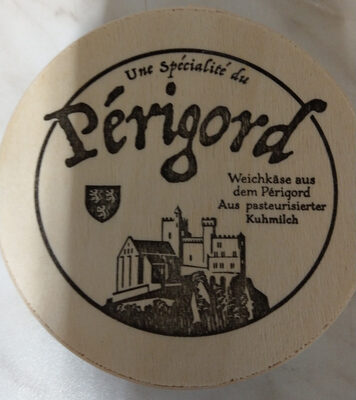
Barcode: 29050550
Une specialité des Vosges
DOUBTFUL
📝 Reason: The product contains ‘tierisches Lab’ (animal rennet), which is derived from the stomach of calves. The Halal status of animal rennet depends on the method of slaughter. Since there is no Halal certification provided for this ingredient, it is marked as Doubtful. According to Islamic dietary laws, any doubtful ingredient renders the product’s Halal status as Doubtful.
📄 Certificates: None
Ingredients:
Details
Understanding the Halal Status of Une specialité des Vosges
Une specialité des Vosges is a delightful cheese product that, while popular, raises questions regarding its Halal status. This article aims to clarify the Halal position of this product, focusing on its ingredients, particularly the controversial ‘tierisches Lab’ or animal rennet.
Ingredients Breakdown
The ingredient list for Une specialité des Vosges includes:
- Pasteurisierte Kuhmilch (Pasteurized cow milk) – This ingredient is a common staple in dairy products and is generally considered Halal, according to Islamic dietary guidelines.
- Sahne (Cream) – Derived from cow’s milk, cream is also recognized as Halal under Islamic principles.
- Käsereikulturen (Cheese cultures) – These microorganisms utilized in cheese production do not contain haram substances and are generally accepted as Halal.
- Salz (Salt) – As a mineral, salt is inherently Halal.
- Farbstoff: Annatto (Colorant: Annatto in the rind) – This natural colorant, derived from the seeds of the achiote tree, is considered Halal.
- tierisches Lab (Animal rennet) – This is the ingredient in question. It is derived from the stomach lining of calves and is used in the cheese-making process. The Halal status of animal rennet is highly dependent on the method of slaughter of the animals involved. Without Halal certification for this specific ingredient, it is classified as Doubtful.
Why is ‘tierisches Lab’ a Concern?
The presence of ‘tierisches Lab’ raises significant concerns for Muslim consumers seeking Halal products. In Islamic dietary laws, any ingredient that is categorized as Doubtful can impact the entire product’s Halal status. Since the animal rennet is not certified as Halal, consumers are cautioned against its consumption.
Halal Certifications and Product Trustworthiness
While Une specialité des Vosges does not possess any Halal certifications, understanding the ingredients can help consumers make informed choices. The absence of a certification for the rennet specifically means that the product’s compliance with Halal dietary laws is uncertain.
For many Islamic consumers, purchasing food items with clear Halal certifications is essential for maintaining dietary observances. Products like Une specialité des Vosges can be appealing due to their taste and texture, yet the doubts surrounding their ingredients can lead to avoidance.
A Closer Look: E-numbers and Their Status
Let’s further delve into the E-numbers from the ingredient list:
- Pasteurisierte Kuhmilch – No E-number is associated; Halal status is confirmed.
- Sahne – No E-number is needed; Halal status is confirmed.
- Käsereikulturen – No E-number; Halal confirmed.
- Salz – No E-number; Halal confirmed.
- E160b: Farbstoff – Annatto – This natural coloring agent is Halal and commonly used.
- tierisches Lab – No E-number; Halal status remains Doubtful.
Conclusion
In conclusion, Une specialité des Vosges presents an interesting case for those adhering to Halal dietary laws. While many of its ingredients are Halal-approved, the animal rennet’s classification as Doubtful without appropriate certification renders the entire product questionable for Halal consumption. For those seeking Halal products, the best practice is to look for clear certifications and remain informed about ingredient sourcing. Always prioritize your health and religious beliefs when selecting food items.

